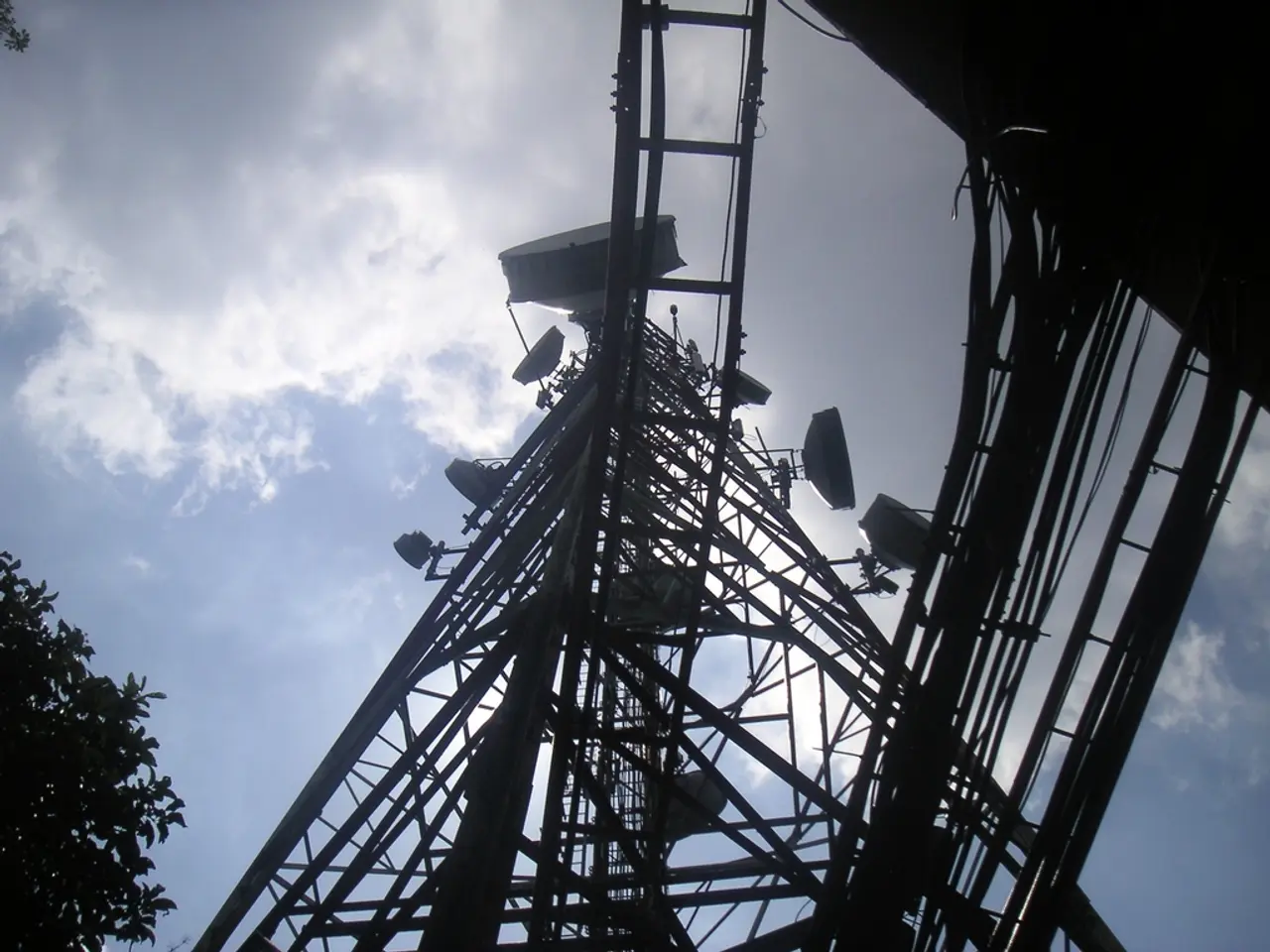Current Market Trends for Internet Service Providers in Nigeria
Overview of the ISP Market
SpaceX's Starlink establishment outranks FiberOne, securing the title of Nigeria's second-largest internet service provider.
The Nigerian internet market is undergoing significant changes, with various factors shaping the growth and competition among Internet Service Providers (ISPs). Key trends include the expansion of fibre networks, the digital divide, and increasing market competition.
The Expansion of Fibre Networks
Nigeria is set to launch a 90,000-kilometre fibre optic network under Project Bridge, aiming to reduce the dominance of mobile network operators and provide ISPs with wider access to core and middle-mile capacity. This initiative could enhance the availability and affordability of broadband services, benefiting both consumers and ISPs [1].
The Digital Divide
Despite growing data revenues, internet adoption in Nigeria is slowing due to rising costs of smartphones and data tariffs, which are pricing out low-income users. This challenge presents a significant hurdle for ISPs looking to expand their customer base [2].
Market Competition
The market is populated by established players like Spectranet and FiberOne, but the entry of new technologies such as Starlink is set to disrupt the status quo.
Starlink vs. Traditional ISPs
Starlink, a satellite-based internet service, offers a unique advantage by providing coverage in areas where traditional ISPs cannot reach due to infrastructure limitations. This could attract users seeking reliability and wider coverage, potentially challenging the dominance of traditional ISPs like Spectranet and FiberOne.
Competition and Challenges for Starlink
Traditional ISPs like Spectranet and FiberOne rely on physical infrastructure, which can be costly and time-consuming to expand. Starlink, with its satellite technology, may offer faster deployment and wider coverage, but it also faces challenges related to cost, latency, and regulatory compliance.
The Role of Mobile Network Operators
Mobile network operators like MTN and Airtel continue to dominate the market, driven by their extensive networks and range of services. However, their grip could be reduced by the expansion of fibre networks under Project Bridge, which aims to give ISPs more access to core and middle-mile capacity [1][4].
Future Outlook
The growth of ISPs in Nigeria will depend on their ability to offer affordable, reliable services that reach underserved areas. Project Bridge and new technologies like Starlink are expected to play crucial roles in this expansion.
Regulatory Environment
Policy and regulatory changes, such as those affecting SIM registrations, will continue to impact ISP growth negatively unless resolved [2].
In conclusion, the Nigerian ISP market is on the brink of significant changes with the introduction of new technologies and infrastructure projects, which will likely shape the competitive landscape between Starlink, traditional ISPs, and mobile network operators.
- The information was disclosed in a recent report by the Nigerian Communications Commission (NCC).
- Starlink's expansion in Nigeria has been bolstered by partnerships with Nigerian companies like TD Africa and Konga.
- As of Q3 2024, Spectranet had 105,441 active subscribers, but has since experienced a decline to 97,381.
- FiberOne currently has 33,010 subscribers and is in fourth place in the Nigerian ISP market.
- Elon Musk's Starlink is the second-largest ISP in Nigeria, surpassing FiberOne in terms of customer numbers.
[1] Project Bridge: Nigeria's 90,000-kilometre fibre optic network (TechCabal, 2023) [2] The Digital Divide in Nigeria: Challenges and Opportunities (World Bank, 2022) [3] Starlink's Expansion in Nigeria (TechEconomy.ng, 2023) [4] Project Bridge: Impact on ISP Market (NCC, 2023)
Read also:
- Indian Oil Corporation's Panipat Refinery secures India's inaugural ISCC CORSIA accreditation for Sustainable Aviation Fuel production
- Increasing Trend Downthe Globe: A Growing Number of Individuals Opt for Electric Vehicles Over Long Distances
- China is, unlike the United States, embracing technological progress rather than attempting to restrict it.
- Airbus experiments with sustainable sea-based energy sources







